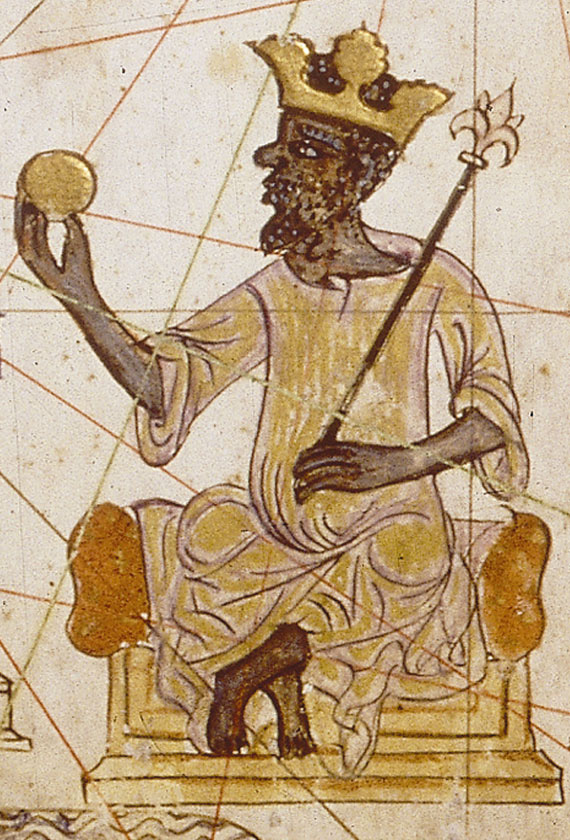Source: http://atlantablackstar.com
Islam Appears in Africa
Islam was first introduced to Africa in Somalia in the early seventh century by Muslims Arabs fleeing persecution from the pagan Quraysh tribe on the Arab Peninsula. Later, it was ingrained with the Arab Islamic military invasion of Africa in 647 C.E., during the third reign of Caliph Uthman ibn Affan, ruler of Mecca, according to Islamonline.
In sub-Saharan Africa, people often converted to Islam to keep trade open and to avoid being sold into slavery. Africans believed Islamic conversion would create mutual respect but since slavery is justified in the Quran, there was no guarantee of avoiding bondage.
Islamic Slave Trade
According to an arabslavetrade.com article, “Denials of Islamic Slavery,” the slave trade in Africa lasted 14 centuries and has continued to the present day in Mauritania, Niger, Sudan and in isolated incidents across the continent.
The cultural practice of slave ownership in Niger was not banned until 2005. In Mauritania, an estimated 600,000 people are described as “modern-day slaves,” in debt bondage, forced marriage and victims of human trafficking.
In a 2014 theinternational.org article, writer Rachael Hancock reported that in the four years since slavery has been criminalized in Mauritania, only two cases have been investigated and just one person convicted.
Enslaved Africans Through Islamic Routes
Islamic traders were complicit in the enslavement of 10 million African people, mostly women and children, who were transported out from the Swahili Coast to India, Saudi Arabia, Turkey and China, as reported in the article “The Politics of Lost Numbers” on arabslavetrade.com.
Africans from various regions were transported via the trans-Sahara route to north Africa, where they were sold in slave markets in Morocco as domestic servants to European buyers.
The followers of Islam introduced chattel slavery, slaves as personal property, rather than indentured slavery, involuntary labor, into the system.
In a 2003 lecture by Sheik Saleh Al-Fawzan, a leading Saudi government cleric, he stated, “Slavery is a part of Islam. Slavery is part of jihad, and jihad will remain as long there is Islam.”
Black Exploitation
During the Islamic slave trade, Black men were used for military service and Black women for sexual exploitation, using their wombs to bear Muslim children, reports arabslavetrade.com in the article, ”Denials of Islamic Slavery.”
African Muslim Empires
African Muslims produced five empires: Takur, Kanem, Ghana, Mali and Songhay. Under Mansa Musa, the 10th mansa or ruler who reigned from 1312-1337, Mali became the first African Muslim state, reports islamreligion.com in the account, “The Spread of Islam in West Africa.”
Muslim Population in Africa
A study of the 2010 world Muslim population by Ohio University found about one-third of the world’s Muslims reside on the African continent. Muslims make up over 45 percent of Africa’s population, with majority being Sunnis.
Radical Islam and the Expanding Conflicts
Source: BBC
Radical Islam in Fragile African States
In a 2012 report by the Organization for Economic Cooperation and Development, the author explores the ways in which radical Islamists are targeting fragile and conflict-affected states in Africa, such as Nigeria, Somalia, Sudan, Chad and Kenya, to motivate anti-system government overthrow.
“Their political objective is to bypass the state by ideologically driving individuals to dream of economic, political or cultural systems which transcend the state, while submerging the latter with violent movements making unrealistic claims,” the report by the international economic cooperative states.
Sharia in Africa
Sub-Saharan Africa is now grappling with pockets of radical Islamists seeking to establish strict Islamic law, Sharia, among some of the region’s more disenfranchised communities.
In northern Mali, Sharia — imposed since 2012 by Ansar Dine, a militant Islamist group based in the country — is used to terrorize the population, according to NBC News. Teenage couples risk death by stoning for holding hands in public.
Al-Shabab
Al-Shabab emerged as the youth wing of Somalia’s Union of Islamic Courts. The radical group is said to have between 7,000 and 9,000 fighters, BBC News reports.
Al-Shabab is known for attacking churches and public spaces in Somalia and Kenya, notably the September 2013 attack at Nairobi’s Westgate shopping center where 68 people were killed.
Boko Haram
Boko Haram, a militant group based in Nigeria that is responsible for more than 4,000 deaths, captured world media attention after the kidnapping of more than 250 schoolgirls from Chibok.
Money for the resistance is often raised through ransoms from kidnappings and funneled back into Islamist jihadist terror activity.
Al-Qaeda in the Islamic Maghreb
Across northern Mali, Islamists groups such as al-Qaeda in the Islamic Maghreb, have recruited and paid for more than 1,000 child soldiers, some as young as 12, from rural towns devastated by poverty. Parents are offered $1,200 for each child who joins, reports BBC News.
The groups manipulate families with the prospect of food and money in exchange for their children’s service in the ongoing radical Islamist cause.
African Muslim Mutilation
The World Health Organization estimates that between 100 million to 140 million Muslim women and girls worldwide have undergone female genital mutilation, with millions more likely to be victimized. Nearly 100 percent of African Muslim women and girls, particularly in Egypt, Guinea, Djibouti and Somalia, are subject to FGM.
There have been reports that the Islamic State, a faction governed by Islamic law, has issued a fatwa (Islamic decree) mandating female genital mutilation for all women age 11 to 46.
Historical Destruction
Radical Muslims are destroying sacred symbols and historical sites throughout Africa, specifically Egypt and Mali. According to a published report, “extremists call them, the symbols of pagan idolatry.”
In a Washington Times 2012 article, Bahraini Sunni leader Abd al-Latif al-Mahmoud called on the Egyptians to “destroy the pyramids and accomplish what [Egypt’s Muslim conqueror] ‘Amr ibn al-’As could not.
That same year, CNN News reported “Al Qaeda-linked rebels in northern Mali destroyed historic and religious landmarks in Timbuktu.”



















